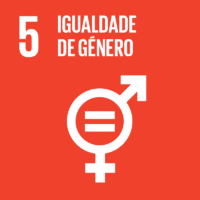Ciência_Iscte
Publicações
Descrição Detalhada da Publicação
Care, support and solidarity among Portuguese families: intertwining mutuality, dependency and autonomy in times of crises
18th IUAES World Congress conference proceedings
Ano (publicação definitiva)
2018
Língua
Inglês
País
Brasil
Mais Informação
Web of Science®
Esta publicação não está indexada na Web of Science®
Scopus
Esta publicação não está indexada na Scopus
Google Scholar
Esta publicação não está indexada no Google Scholar
Esta publicação não está indexada no Overton
Abstract/Resumo
After 3 decades of economic growth and significant improvement of social conditions, Portugal is now going through a profound social and economic crisis. Following the international financial crisis of 2008, Portugal signed four-year structural adjustment programme agreement with the ‘Troika’ (i.e. European Commission; European Central Bank; International Monetary Fund) in May 2011. Under a right-wing coalition government, the programme’s implementation was shaped by harsh tax increases, spending cuts, and reduction of welfare benefits. Similarly, to other countries on the indebted periphery of the Eurozone, the core of Portuguese policies of
austerity centered on measures of internal devaluation mainly constituted by wage repression;
employment precariousness, labour devaluation and mass unemployment – contributing to the
most violent and rapid transfer of income from labour to capital in democratic Portugal (Reis et.
al. 2013). The human and social costs of austerity measures were devastating.
While increasingly larger sectors of the population see their living conditions deteriorate and
become increasingly unstable. In order to face up to everyday basic needs, and given the welfare state’s collapse, citizens are resuming informal routes to provide for their daily needs, such as the support provided by interpersonal networks or non-governmental organizations. Public actions of social solidarity grow day by day, the personal stories of help received by friends, neighbours, relatives or mere acquaintances are commonly heard among almost all social groups (young people, old people, poor classes, middle classes…) I will discuss some of these different dimensions of care using a broad notion of concept - one that can tackle the multiple ways of helping and support to ensure that needs are met, - and building on ethnographic work done among middle class families in Lisbon and Oporto between
2012 and 2015, I will argue (i) that provision of care, such as it has become in the present situation, takes on a central role in the processes of everyday livelihood, in national economy, and (ii) that these informal strategies are effective means of survival in a context of crisis. Confronted with increasing shortcomings in the state care system, people return to informal ways of making ends meet. Actions borne out of personal initiative, imbued of the morality of “care” and the common good, have become frequent making life possible in moments of crisis.
Agradecimentos/Acknowledgements
--
Palavras-chave
Care,Family,Austerity,Precarity
Classificação Fields of Science and Technology
- Antropologia - Ciências Sociais
Registos de financiamentos
| Referência de financiamento | Entidade Financiadora |
|---|---|
| UID/ANT/04038/2013 | Fundação para a Ciência e a Tecnologia |
Contribuições para os Objetivos do Desenvolvimento Sustentável das Nações Unidas
Com o objetivo de aumentar a investigação direcionada para o cumprimento dos Objetivos do Desenvolvimento Sustentável para 2030 das Nações Unidas, é disponibilizada no Ciência_Iscte a possibilidade de associação, quando aplicável, dos artigos científicos aos Objetivos do Desenvolvimento Sustentável. Estes são os Objetivos do Desenvolvimento Sustentável identificados pelo(s) autor(es) para esta publicação. Para uma informação detalhada dos Objetivos do Desenvolvimento Sustentável, clique aqui.

 English
English



